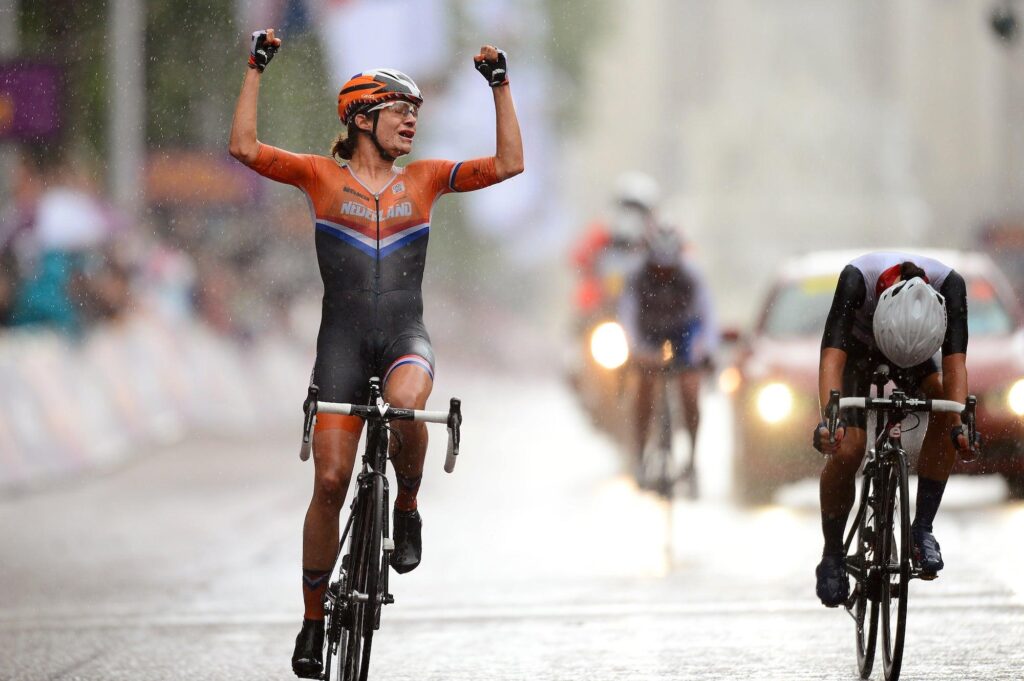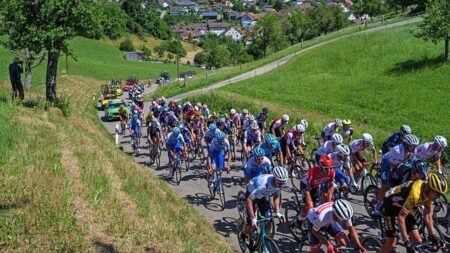In a heated controversy that has ignited debates surrounding gender and sports, a group of female cyclists has voiced their outrage over the recent performance of a transgender competitor at a championship race. The individual in question, whose exceptional speed and skill led to a dominant finish, has drawn criticism from some female athletes who claim that the inclusion of transgender women in women’s cycling events undermines fair competition. The uproar has sparked a broader discussion about the implications of inclusion policies in sports and the complexities of gender identity, putting a spotlight on the challenges faced by female athletes in what they perceive as a deceptive landscape. As advocates on both sides of the issue weigh in, the debate over equity and fairness in competition continues to intensify.
Female Cyclists Challenge Trans Inclusion in Sports Amid Controversy
In a heated championship race that has ignited widespread debate, female cyclists have openly expressed their outrage at what they describe as a deceptive inclusion of transgender competitors in women’s events. During the recent competition, a trans female athlete triumphed, outpacing her opponents and sparking allegations of unfair advantage. Many female cyclists, feeling marginalized by policy shifts within cycling organizations, argue that the physiological differences – including muscle mass and endurance typically seen in male puberty – create an uneven playing field. This situation has raised significant questions about the fairness of competition and the criteria governing athlete inclusion.
The fallout has prompted athletes to band together in a show of solidarity, demanding a re-evaluation of existing policies. While some argue for inclusive practices, others insist that the integrity of women’s sports is at stake. Cyclists have taken their concerns public through social media platforms and open letters, emphasizing the need for changes that can ensure both fairness and inclusivity. Below are key points from the recent discussions surrounding this contentious topic:
- Fair Competition: Advocates for women’s cycling stress the need for a level playing field.
- Policy Review: Calls for governing bodies to revisit and possibly revise inclusion policies.
- Community Voices: Growing support among female athletes encouraging open dialogue.
Impacts on Fair Competition and the Future of Women’s Cycling
The recent championship race has ignited a significant debate regarding fair competition in women’s cycling, particularly concerning the inclusion of transgender athletes. Female cyclists have expressed their outrage, citing a perceived lack of equity that undermines the integrity of the sport. Many argue that allowing individuals who have undergone male puberty to compete against biological females presents an uneven playing field. This situation raises critical questions about how governing bodies of cycling are interpreting and enforcing gender eligibility rules, as well as the long-term implications of continuing to permit such participation.
As discussions intensify, stakeholders within the sport must consider the future landscape of women’s cycling. Potential impacts may include:
- Decreased Participation: Some female athletes may feel discouraged from competing if they believe their chances of success are diminished.
- Calls for Regulatory Changes: Increased advocacy for clearer guidelines regarding transgender participation in women’s sports.
- Shift in Sponsorship: Brands may reconsider their partnerships based on the evolving dynamics of audience support and athlete performance.
To analyze the shifts in competitive advantage, consider the following comparative table:
| Category | Traditional Female Competitors | Trans Competitors |
|---|---|---|
| Physical Strength | Natural biological factors | Potential advantages due to male puberty |
| Competitive Equity | Equal ground within female field | Contentious balance in competition |
| Cultural Perception | Support for female-only divisions | Challenging traditional norms |
Strategies for Policy Revisions in Gender Classification in Athletics
In light of the recent controversy surrounding a trans competitor’s success in a female cycling championship, it becomes crucial to explore adjustments in gender classification policies in athletics. Sports authorities must prioritize fairness and inclusivity while drafting regulations that reflect the evolving understanding of gender identity. To achieve this balance, stakeholders could consider the implementation of thorough assessments and criteria that define eligibility based on physiological benchmarks rather than strictly adhering to binary classifications. This would involve the incorporation of factors such as:
- Hormonal levels
- Physical attributes
- Life experience and training backgrounds
Additionally, the establishment of a transparent review process is essential for rebuilding trust within the community. Engaging athletic organizations, medical experts, and athletes in comprehensive discussions will foster a collaborative environment. Proposed strategies may include:
- Regularly scheduled reviews of policies based on emerging research
- Formation of an independent body to oversee athlete eligibility
- Workshops to educate athletes on the importance of inclusivity and equity
| Focus Area | Proposed Action |
|---|---|
| Eligibility Criteria | Holistic evaluations based on multiple factors |
| Transparency | Regular policy reviews and community consultations |
| Education | Workshops on gender inclusivity |
To Wrap It Up
In conclusion, the intense reactions from female cyclists regarding the recent championship race underscore the ongoing debate surrounding inclusivity and fairness in competitive sports. As the controversy unfolds, it raises critical questions about the balance between supporting transgender athletes and ensuring equitable opportunities for cisgender women. With voices from both sides expressing strong emotions and valid concerns, the governing bodies of cycling and other sports may need to reevaluate their policies to address these complex issues. As this dialogue continues, one thing remains clear: the world of sports is at a pivotal intersection of tradition, equity, and evolving societal norms. The outcome of this debate will likely have wide-reaching implications for the future of women’s athletics.











